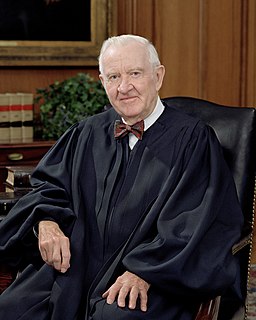A Quote by Carol Moseley Braun
I think its time to get a reapportionment process that frankly takes out the incumbency protection and the raw politics of the process.
Related Quotes
I don't think either party has any idea what's headed their way. Their business is to remain mired in process. They call it deliberation, thoughtful, reasonable deliberation. Trump doesn't know any of that. Trump is not a process guy. To him, process is delay. Process is obfuscation. Process is incompetence. People engaging in process are a bunch of people masking the fact they don't know what they're doing, and he has no time for 'em and no patience.
Every individual who participated in the redistricting process knew that incumbency protection was a critical factor in producing the bizarre lines. ... Many of the oddest twists and turns of the Texas districts would never have been created if the Legislature had not been so intent on protecting party and incumbents.
Well, it's not all the same, but there are a lot of parallels. I'm not sure how to answer [on psychology background], but I think when I was studying psychology I had a professor and a friend who would talk about "process" all the time. Your process, his process, the group's process. There's some carryover from that discussion to my creative work.
The United States Constitution builds politics right into the process of selecting federal judges. This third branch, the judiciary, is designed to have a longer view. To have individuals who are more insulated from politics. They're not elected directly. They're appointed for life. So, politics enters, but it's also, controlled. And if you bypass this process, I'm not sure what we do.
Loving the process. I learn it over and again and in different ways. I'm speaking particularly to the musical process, but I definitely think that this lesson transcends. Loving the life process. Loving the process of becoming stronger by experiencing something that makes me feel unsteady. The process of speaking and living my truth and making my own path.
The trouble with audition process is, when you're an unemployed actor, it's the only time you get to act, and it can be quite fun. If you feel in control of the material and you feel that the people are pleased to see you and are excited by you auditioning for them, it can be a really rewarding process. But it can also be a very humiliating process.
If you want the best things to happen in corporate life you have to find ways to be hospitable to the unusual person. You don't get innovation as a democratic process. You almost get it as an anti-democratic process. Certainly you get it as an antithetical process, so you have to have an environment where the body of people are really amenable to change and can deal with the conflicts that arise out of change an innovation.
Ideas, as the raw material from which knowledge is produced, exist in superabundance, but that makes the production of knowledge more difficult rather than easier. Many ideas- probably most- will have to be discarded somewhere in the process of producing authenticated knowledge. Authentication is as important as the raw information itself, and the manner and speed of the authentication process can be crucial.
I think it's reasonable that the government, when it has a warrant from a court, when it's exposed to scrutiny by a legal process that would be upheld, not just nationally, but internationally as a reliable and robust standard rights protection, they can enjoy certain powers. This is no different from having the police able to get a warrant to go and search your house, to kick at your door because they think you're an arms dealer or something like that. There needs to be a process involved, it needs to be public, and it needs to be challengeable in court at all times.


































